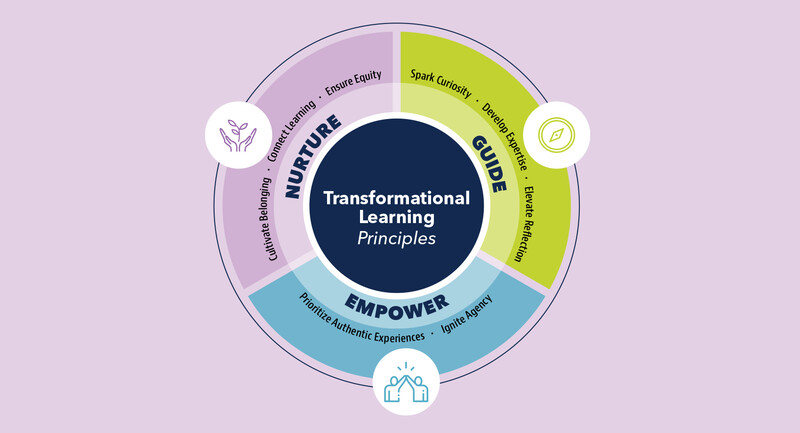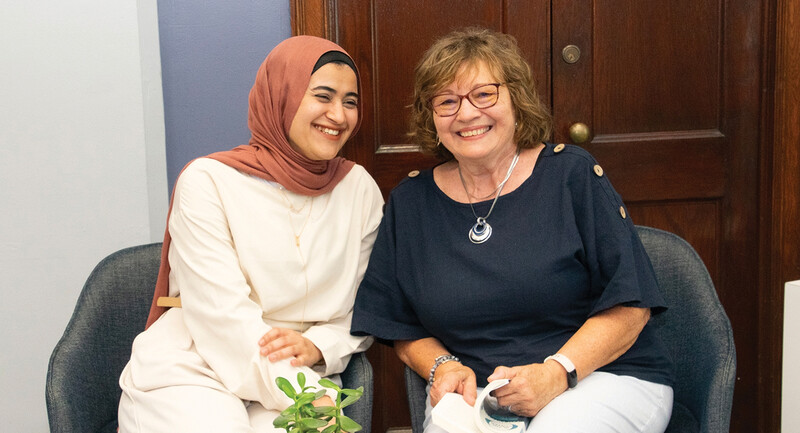Shared reading experiences are magical. I still recall sitting on a beanbag chair with a friend in our kindergarten classroom as we took turns identifying all of the objects in Richard Scarry's giant picture books. I recall laughing and gasping in unison with my classmates as my 4th grade teacher read Roald Dahl books to us during lunch. And I recall the silence in my 10th grade English class as we finished the last page of Shirley Jackson's "The Lottery." These shared reading experiences deepened my connections with the texts, brought me closer to my reading buddies, and left me wanting more.
I know that I was not alone in feeling energized by the culture of reading in my school. It's likely my peers felt the same way. However, it's also likely my teachers did not experience a similar "culture of reading" in their own professional practice.
When I began teaching 30 years ago, one had to attend professional conferences—at a great investment of time and money—or maintain affiliation with a university to stay on top of what was new in the field. In recent decades, however, in a process accelerated by the internet, the profession has come together and created new ways of growing, vetting, and sharing the professional knowledge base more widely.
Today, ready access to current research, timely curricular resources, and innovative instructional strategies is essential to meeting each student's needs—not a luxury or add-on. All students deserve to have teachers and administrators whose practice is informed by the latest developments in teaching and learning. It's a matter of equity.
School Professional Libraries
Teacher leaders and principals can ensure that faculty members have opportunities to engage with this professional literature together. Doing so will not only deepen educators' understandings of these texts, but strengthen relationships among colleagues.
One of the schools I work with maintains a complete archive of Educational Leadership magazines. When the school's instructional leadership team decided to respond to identified student needs with a professional learning focus on social and emotional health, the team drew upon two full EL issues (December 2017/January 2018 and October 2018) to deepen their knowledge and get inspiration before designing PD for their colleagues.
During a visit to another school, I noticed something in the faculty bathroom. Located just above the toilet paper was a bulletin board that the school librarian updated regularly with a photocopy of the table of contents of new acquisitions to the school's professional library. I sought her out to ask about it. The librarian reported that the circulation of these professional periodicals and books had quadrupled since she started this system, and the impact on team conversations and teachers' practice had been transformative.
Professional literature had a new place in these schools, due to key moves made by principals and teacher leaders. Principals secured the resources to obtain professional materials. Then, together with teacher leaders who have a strong sense of their colleagues' passions, questions, and concerns, they selected titles that were readable and relatable, which started a buzz among the faculty and drew in even the most reluctant readers.
Research Clearinghouses
Educational research is notoriously distanced from educational practice. Not only are important research studies often written in inaccessible jargon and reported at intimidating length, but they are generally published in academic journals that have a subscription fee no teacher or even school system can afford. Luckily, a number of institutions have committed to bridging these gaps, by making research syntheses more digestible and easier to apply in practice.
Many veteran teachers recall the futility of searching ERIC, a federally funded database of education research, during their graduate programs. Few standards were in place to guide what was compiled there; it was simply a collection of studies, with little regard for usefulness or quality. Today, federal support for education research is focused on growing the number of resources in the more authoritative What Works Clearinghouse (WWC) and sustaining the Regional Educational Laboratory (REL) Program. Many educators may not know that they can now begin their planning—whether improvement planning at the school level or intervention planning at the classroom level—with a quick WWC search for vetted research syntheses or even use the free "Ask a REL" service to receive a research-informed response to a specific question.
Institutions of higher education, where much of education research is produced, have also taken a lead role in bridging research and practice. The Useable Knowledge website of the Harvard Graduate School of Education, for example, has a collection of research syntheses that is searchable by topic and audience. Similarly, The American Educator, the journal of the American Federation of Teachers, often contains research syntheses and is searchable by topic on the organization's website. Most subject-specific professional associations also summarize and share relevant research in useful ways.
School and district administrators should routinely scan such sites and sources for research that is relevant to current priorities, so they can share these links in their newsletters and team meetings. In a coordinated effort, teacher leaders can generate engagement around these articles, as they share their thoughts and reflections, and the implications of articles for practice—and invite colleagues to do the same.
Online Communities
Social interaction is important to adult learning. We push each other's thinking and help each other to make connections to prior knowledge and experiences in ways that deepen meaning. It's no surprise, then, to note the extent to which educators are flocking to online professional communities to seek out and chew on new ideas.
Whether through launching a new professional learning unit with an exploration of relevant Twitter hashtags (such as #PBL, #studentvoice, or #culturallyresponsiveteaching), becoming critical consumers by collaboratively examining the quality of materials found on Pinterest, or inviting guest lecturers into meetings through Ted Talks on YouTube, teacher leaders and principals can make creative use of new types of "texts" for professional learning. It's important to note that these forums are open-access and invite all to engage. This is a decidedly more democratic (and fun) way of growing, vetting, and sharing knowledge than having a few decision makers determine what counts.
A Culture of Reading
The task facing today's schools—educating each student to higher standards than ever before—requires continuous learning for educators. The work is too complex, the stakes too high, and the urgency too great to leave each individual teacher and administrator with the responsibility of developing their own knowledge base, strategies, and tools.
As educators read together and learn together within and beyond the boundaries of our schools, our commitment to each other's learning will serve to strengthen the profession, and our connections will enable us to better serve students. Principals and teacher leaders are the key catalysts for such change. They can create the culture needed for professional reading to power up teaching and learning.








